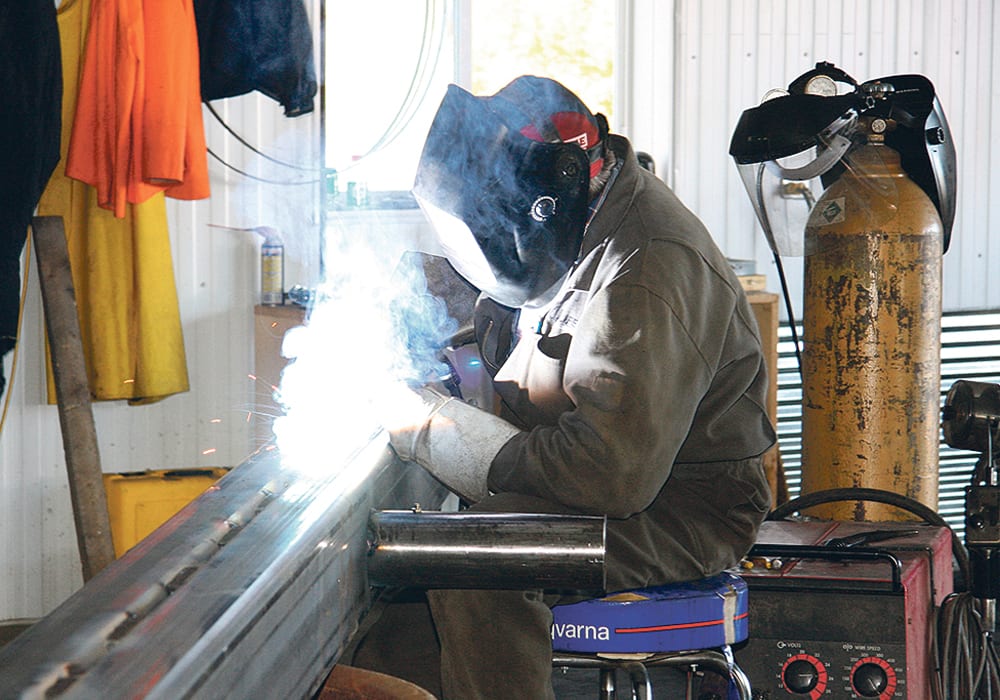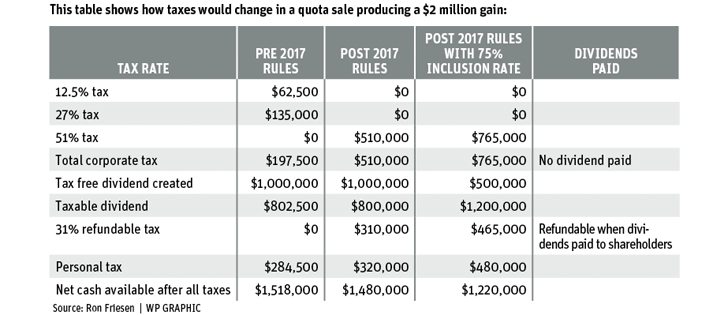The people and events in this column are based on real MNP clients.
Chuck Addison was chilling out at the cottage by Green Lake, Sask., celebrating with his two brothers, Randy and Max. He kidded them about their bickering and how, despite themselves, they could make a good go running the family farm.
After two years of talking, negotiating, debating and processing a considerable amount of paperwork, the three brothers had sorted out a plan for the future of their family farm. It hadn’t been easy; in fact, at times it was complicated. But now it was resolved.
Read Also

Kochia has become a significant problem for Prairie farmers
As you travel through southern Saskatchewan and Alberta, particularly in areas challenged by dry growing conditions, the magnitude of the kochia problem is easy to see.
Growing up together on the farm, the brothers performed a wide range of duties to support their parents. But while Chuck had done his share of farm work, he never had any interest in spending his life in agriculture. Now he was working as an IT specialist at a major industrial firm.
Randy and Max, however, never aspired to do anything else. Growing up and during summer breaks when they went to college, they gradually took on more responsibility and learned about the operations from their parents, Angus and Mary.
Everyone assumed Randy and Max would eventually take over the farm, but as their parents inched toward retirement, they wondered if the bickering brothers could run the farm together. How would they pay their parents? What would happen to Chuck if he chose not to join them?
On the recommendation of a family friend, Angus and Mary engaged an MNP adviser to steer the family through the process.
The family discovered many factors were involved in transitioning beyond family dynamics. There were tax issues and estate planning considerations. There was the land the family owned and the farming business itself. Angus and Mary wondered how they would divide it up fairly between their sons and fund their retirement.
Brian, their adviser, helped reorganize the structure of ownership to reduce Angus and Mary’s tax burden. He also recommended Randy and Max lease the land rather than take over ownership, thereby creating an income stream for Angus and Mary during their retirement.
But Randy and Max also worried about how their partnership would work. What if they fought over small things like how much money to take out each year, or whether to repair or replace a piece of equipment? What if one day, one brother wanted to retire earlier than the other?
“I feel like if we’re 50-50 partners, I’m going to have to ask Max permission to go to the bathroom,” Randy had confided to Chuck.
Brian suggested that rather than have the brothers own the farm jointly, they should each set up an incorporated business and then sign a joint venture agreement to have their two companies operate the farm. The two companies would also gradually buy shares in the farming business from the boys’ parents.
The structure Brian proposed put in place a clear, written agreement to govern how the brothers would work together. It allowed each of them to remain in control of his own future and make decisions about his own finances without having to consult the other, and included a dispute-resolution process.
But what about Chuck? What was he entitled to? The family looked at different scenarios, including giving Chuck an opportunity to hold non-preferential shares in the farm, meaning he had a financial stake but no say in the running of the operation.
But Randy and Max wanted to be free and clear to run the farm.
Angus and Mary also considered leaving each of the three brothers an equal share in the land in their wills. But that meant one day, Randy and Max would have to pay Chuck rent for the land they were farming.
Initially, Chuck was reluctant to consider any other scenario.
“I grew up here just like you guys,” he said. “Even if I don’t farm the land, this is still my home.”
Chuck was also aware that in the long run, the land could be worth more than the farming business.
In the end, the solution turned out to be at Green Lake where 25 years earlier, Angus and Mary had inherited a property and built a small cottage. Angus proposed that if Randy and Max wanted the farm, Chuck could have the cottage. He could also receive a slightly larger share of the parents’ non-farming assets, like their RRSPs and savings.
After giving it some thought, and talking to his wife, Chuck accepted the proposal. Once the paperwork was completed, Chuck invited his brothers to join him at the cottage to celebrate.
“I guess we’ll have to pay you rent the next time we come up here,” Max joked.
“You guys are welcome here anytime,” said Chuck. He paused. “I will always charge you a reasonable price.”
Bob Tosh is a farm management consultant in MNP’s Farm Management Consulting group in Saskatoon. For more information, call 877-500-0778 or email Bob.Tosh@mnp.ca.

















